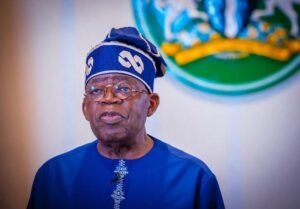Supreme Court reserves judgment on alleged N3.5bn Paris Club fraud case until June 7

The Supreme Court of Nigeria in Abuja has deferred its judgment until June 7, 2024, in the contentious final forfeiture suit concerning N1,222,384,857.84 (One Billion, Two Hundred and Twenty Two Million, Three Hundred and Eighty Four Thousand, Eight Hundred and Fifty Seven Naira, Eighty Four Kobo).
This case, brought forth by Melrose General Services Limited, revolves around allegations of fraudulent activity related to the Paris Club fund.
At the heart of the matter is a challenge to the Court of Appeal’s decision, which ordered the forfeiture of the aforementioned sum to the Federal Government of Nigeria.
Melrose General Services Limited contends that the funds in question do not stem from unlawful activities but rather represent payment for a contractual and consultancy agreement.
Their legal counsel, Kehinde Ogunwumiju, fervently argued for the reversal of the forfeiture decision during the recent court session held on Thursday, March 14, 2024.
In response, counsel representing the Economic and Financial Crimes Commission (EFCC), Ekele Iheanacho, presented a compelling counter-argument.
He emphasized the extensive investigative efforts undertaken by the EFCC, revealing that the N3.5bn in question was purportedly paid to Melrose General Services Limited under false pretenses.
The investigation uncovered that the company had allegedly not fulfilled its consultancy obligations to the Nigerian Governors Forum (NGF) as claimed, leading to fraudulent withdrawals and subsequent intervention by the EFCC.
Further revelations indicated additional payments made by Melrose General Services Limited to other entities, further complicating the matter.
The legal discourse delved into the nuanced concept of forfeiture, with both sides presenting intricate arguments to support their respective positions.
Despite the thorough deliberations, the five-man panel of the Supreme Court ultimately opted to reserve judgment until June 7, 2024, indicating the gravity and complexity of the case at hand.
As stakeholders await the final decision, the outcome of this legal saga could have far-reaching implications for accountability and transparency within Nigeria’s financial landscape.









